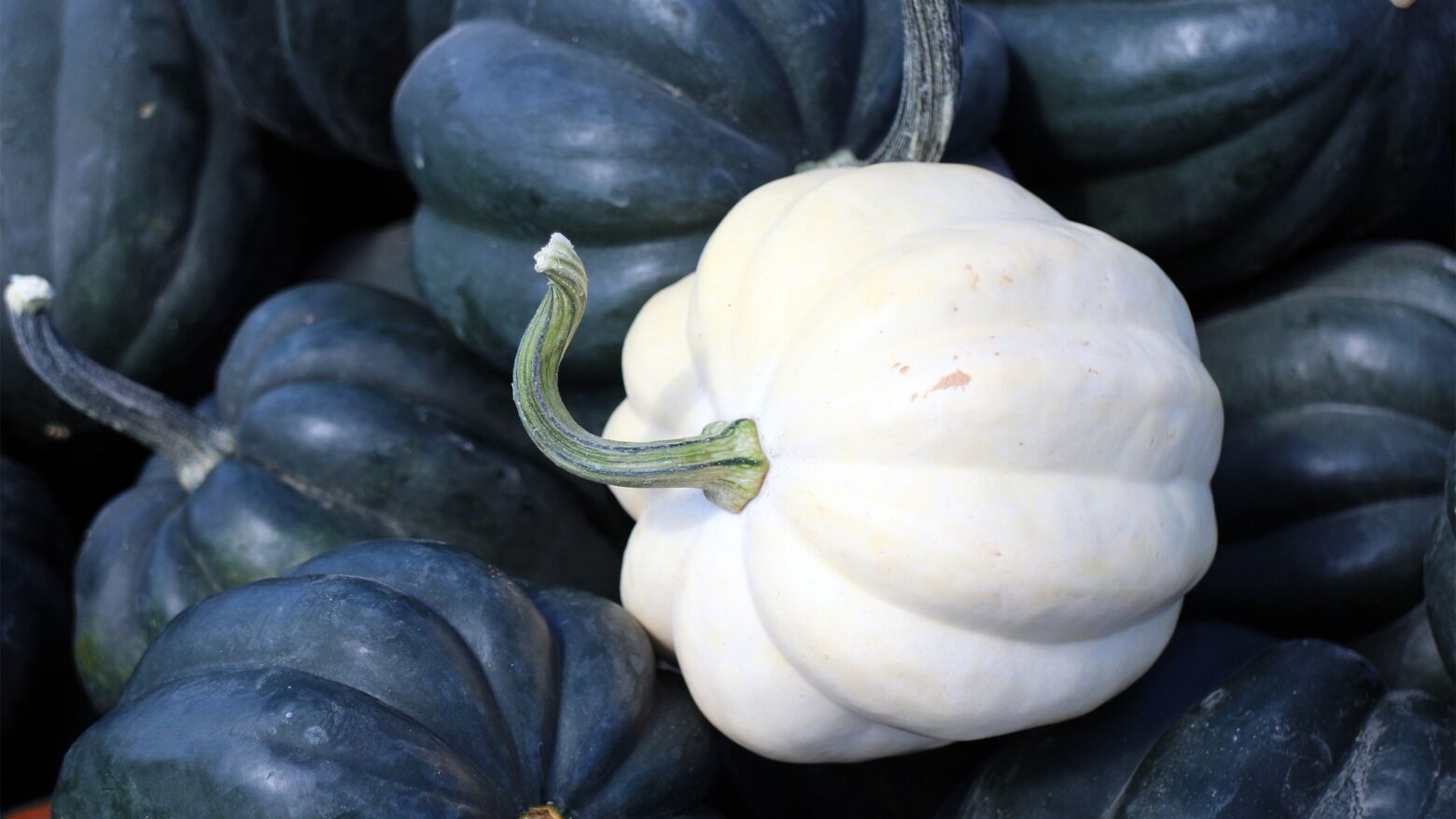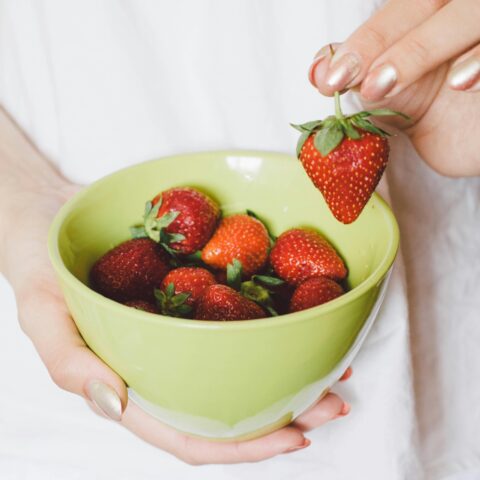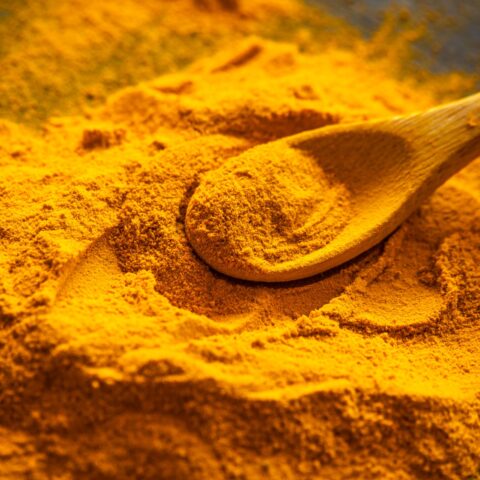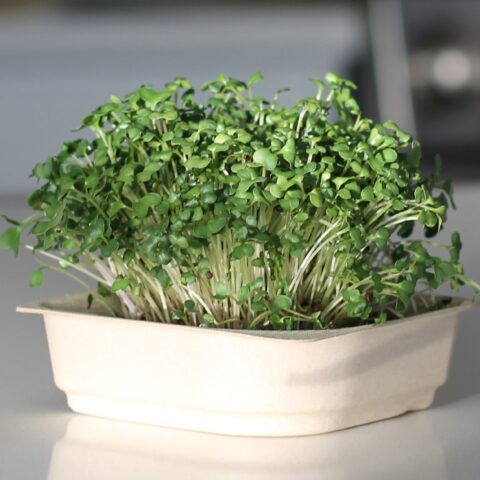Is Acorn Squash Good for You?

Acorn squash, with its distinctive ridged shape and sweet, nutty flavor, is a popular winter squash. While it’s technically related to summer squashes like zucchini, its tough skin and drier flesh make it more suited for hearty fall and winter dishes.
Historically, acorn squash was prized for its long shelf life, making it a valuable food source throughout the colder months. Today, it’s enjoyed in a variety of ways: baked, roasted, stuffed, and even pureed into soups.
What Is Acorn Squash?
Acorn squash is a member of the gourd family (Cucurbita), which includes other popular varieties like pumpkin, butternut squash, and zucchini. [1] True to its name, acorn squash has a distinctive acorn-like shape with ridged skin.
While the color can vary from dark green to white, the most common types are dark green with a touch of orange. The flesh of the acorn squash is a vibrant yellow-orange and has a subtly sweet and nutty flavor. Although technically a fruit, [2] acorn squash is often used as a starchy vegetable, similar to potatoes, butternut squash, and sweet potatoes.
Acorn squash is a warm-season crop that can be grown in many regions. Unlike summer squashes, which are harvested and eaten when they are young and tender, winter squashes like acorn squash are allowed to mature fully. This means the seeds inside have ripened and the skin has hardened to a tough rind, which allows for storage throughout the winter months. [3]
Health Benefits of Acorn Squash
A one-cup serving of acorn squash (about 205 grams) contains approximately 115 calories, 2.3 grams of protein, 30 grams of carbohydrates, and less than a gram of fat. [4] It’s a nutritional powerhouse packed with vitamins, minerals, and other beneficial nutrients.
Acorn squash is full of antioxidants, the beneficial compounds that help protect our cells from damage. Diets rich in antioxidants have been linked to a reduced risk of chronic diseases like heart disease and cancer. [5]
Acorn squash is particularly rich in carotenoids, which are plant pigments with powerful antioxidant effects. In fact, many winter squash are excellent sources of alpha-carotene, second only to carrots. [6] The carotenoids found in acorn squash, including alpha-carotene, beta-carotene, and zeaxanthin, may help protect against type 2 diabetes, lung cancer, cognitive decline, and eye diseases. [7,8,9]
Acorn squash is also a great source of vitamin C, a potent antioxidant that supports our immune system and overall health. [10] Along with its impressive antioxidant profile, acorn squash also boasts a range of other essential nutrients.
- It’s a great source of B vitamins, which are important for energy production and red blood cell formation.
- It also provides key electrolytes like magnesium and potassium, which support muscle function and help regulate blood pressure. [11,12]
- The fiber in acorn squash is important for digestion and overall health.
And don’t forget about those seeds. Squash seeds are a good source of protein, healthy fats, vitamin E, and phytosterols, which may help lower cholesterol. In fact, historically, the seeds were likely the most consumed part of the squash, as many wild varieties had bitter flesh. [1]
How to Select and Store Acorn Squash
Acorn squash is usually harvested in the fall and winter months. That’s when it’s most fresh in the grocery store. When choosing an acorn squash, look for one with dark green skin and a few orange patches. Avoid any with soft spots or bruises. It should feel heavy for its size and have a firm, intact stem, which keeps it fresh.
Acorn squash has a long shelf life. If you store it whole in a cool, dry place, like a pantry or root cellar, it can last a month or longer. Once you cut it open, though, you need to use it quickly. Wrap the cut surfaces tightly with plastic wrap or place cut-side down in an air-tight container and store in the fridge for up to four days. Cooked acorn squash should be kept in an airtight container in the fridge and used within three days.
If you want to store it longer, you can freeze it. Just cook it first, remove the skin, and cube or mash the flesh. It will store in an airtight container in the freezer for up to six months. [3]
Prepping and Cooking Acorn Squash
Acorn squash has a mild, buttery flavor that pairs well with various seasonings, especially ginger and cinnamon. It can be baked, roasted, boiled, or pureed into soups.
While edible raw, acorn squash is typically cooked. To roast, halve the squash, remove the seeds, and roast at 400°F until tender.
Roasted acorn squash can be cubed, mashed, or used in desserts. It can also be broiled, sautéed, grilled, or steamed (but peeled first).
Resources
- Wyatt LE, Strickler SR, Mueller LA, Mazourek M. An acorn squash (Cucurbita pepo ssp. ovifera) fruit and seed transcriptome as a resource for the study of fruit traits in Cucurbita. Horticulture Research. 2015 Jan 28;2(1). https://pmc.ncbi.nlm.nih.gov/articles/PMC4595981/
- Schaffer AA, Paris HS. Melons, Squashes, and Gourds. Reference Module in Food Science. 2016; https://www.sciencedirect.com/topics/agricultural-and-biological-sciences/acorn-squash
- Winter Squash [Internet]. Illinois Extension. 2024. Available from: https://extension.illinois.edu/gardening/winter-squash
- Squash, winter, acorn, cooked, baked, without salt [Internet]. FoodData Central. U.S. Department of Agriculture ; 2019 [cited 2024 Dec 10]. Available from: https://fdc.nal.usda.gov/food-details/169293/nutrients
- Aune D, Keum N, Giovannucci E, Fadnes LT, Boffetta P, Greenwood DC, et al. Dietary intake and blood concentrations of antioxidants and the risk of cardiovascular disease, total cancer, and all-cause mortality: a systematic review and dose-response meta-analysis of prospective studies. The American Journal of Clinical Nutrition. 2018 Nov 1;108(5):1069–91. https://pmc.ncbi.nlm.nih.gov/articles/PMC6250988/
- Aghajanpour M, Nazer MR, Zia Obeidavi, Akbari M, Parya Ezati, Kor NM. Functional foods and their role in cancer prevention and health promotion: a comprehensive review. American Journal of Cancer Research [Internet]. 2017 Apr [cited 2024 Oct 20];7(4):740. Available from: https://pmc.ncbi.nlm.nih.gov/articles/PMC5411786/
- Kim JK. An update on the potential health benefits of carotenes. EXCLI Journal [Internet]. 2016 Jan 6 [cited 2020 May 2];15:1–4. Available from: https://www.ncbi.nlm.nih.gov/pmc/articles/PMC4817424/
- Fiedor J, Burda K. Potential Role of Carotenoids as Antioxidants in Human Health and Disease. Nutrients [Internet]. 2014 Jan 27 [cited 2019 May 17];6(2):466–88. Available from: https://www.ncbi.nlm.nih.gov/pmc/articles/PMC3942711/
- Johnson EJ, Vishwanathan R, Johnson MA, Hausman DB, Davey A, Scott TM, et al. Relationship between Serum and Brain Carotenoids, α-Tocopherol, and Retinol Concentrations and Cognitive Performance in the Oldest Old from the Georgia Centenarian Study. Journal of Aging Research. 2013;2013:1–13. https://pmc.ncbi.nlm.nih.gov/articles/PMC3690640/
- Figueroa-Méndez R, Rivas-Arancibia S. Vitamin C in Health and Disease: Its Role in the Metabolism of Cells and Redox State in the Brain. Frontiers in Physiology [Internet]. 2015 Dec 23 [cited 2019 Apr 27];6. Available from: https://www.ncbi.nlm.nih.gov/pmc/articles/PMC4688356/
- Ahmed F, Mohammed A. Magnesium: The Forgotten Electrolyte—A Review on Hypomagnesemia. Medical Sciences [Internet]. 2019 Apr 4 [cited 2020 Jan 12];7(4):56. Available from: https://www.ncbi.nlm.nih.gov/pmc/articles/PMC6524065/
- Kim BS, Yu MY, Shin J. Effect of low sodium and high potassium diet on lowering blood pressure and cardiovascular events. Clinical Hypertension. 2024 Jan 2;30(1). https://pmc.ncbi.nlm.nih.gov/articles/PMC10759559/
Maureen Farrar
Maureen Farrar has spent more than 20 years as a writer and editor for several print and digital outlets. She writes about health, fitness and nutrition.
More About The Author




